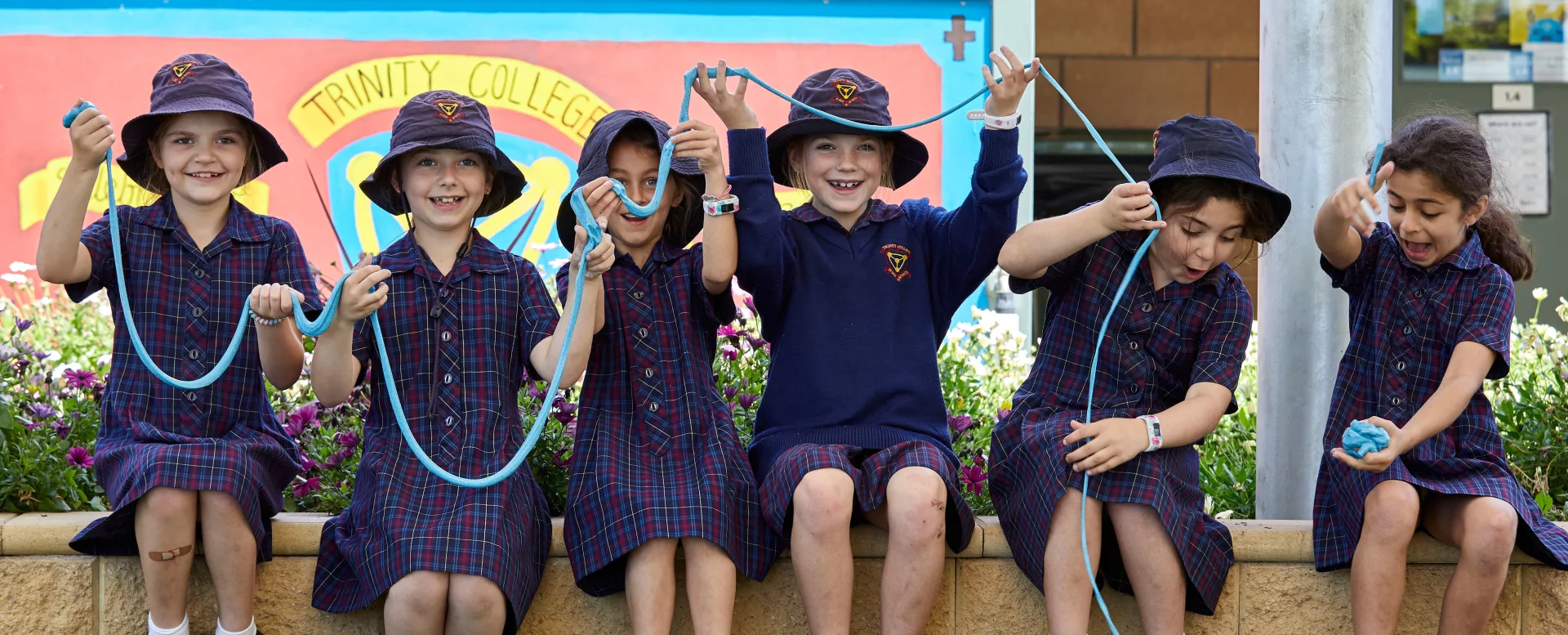Positive Education
As a Positive Education School, at Trinity College we aim to educate and support young people to build skills for both academic success and wellbeing, as we understand that both of these aspects of education are equally important. We also believe that supporting and developing the wellbeing of our staff and promoting wellbeing in our wider community, are essential to our effectiveness as a school. Our Positive Education approach actively supports our College aims.
What is Positive Education?
Positive Education is defined as the application of the science of Positive Psychology in education settings. Positive Psychology investigates human flourishing. It promotes the idea that people do best when we help them to cultivate what is best in themselves, rather than just responding to problems. Research in this field is demonstrating that skills for a flourishing life can be taught successfully in schools and that teaching these skills can improve both wellbeing and academic outcomes for young people.
At Trinity, our approach to Positive Education respects and is consistent with our Christian ethos. It is also grounded on the research evidence about what works to improve wellbeing in schools.
Strengths of Character
We are building a strengths based culture, focussing on Strengths of Character as assets that we can celebrate and recruit to improve our wellbeing and performance. We have chosen the Values in Action (VIA) Character Strengths to guide us.
PERMA+
Trinity College has adopted the PERMA+ model of wellbeing. In this model, wellbeing is much more than just the traditional idea of happiness. It is seen to be a combination of Positive Emotions, Engagement, Relationships, Meaning, and Accomplishment, plus Optimism and good Health. In order to reach our goals to build and support PERMA+, we are continually developing and improving the ways in which we learn, live, teach, measure and embed:
- Gratitude and Kindness practices that build positive emotions, positive relationships and meaning.
- A Growth Mindset, based on the work of Dr Carol Dweck, to cultivate the understanding that accomplishment and success are built more by effort, persistence, curiosity, help-seeking, overcoming failure and working to master new skills, than by natural talent or ability.
- Training for students in friendship skills, conflict resolution and restorative practices to support the development of positive healthy relationships.
- Skills for mental fitness, including learning and practising mindful awareness, managing thoughts and emotions effectively, and recovering from the tough things in life.
- An optimistic approach to life, through reflections on the good things in life, celebrating them and taking active steps to cultivate a positive future.
- Good understanding and habits for healthy nutrition, healthy sleep, healthy activity and personal safety.
Trinity College is proud to be a member school of national body, the Positive Education Schools Association (PESA). We also partner with the South Australian Health and Medical Research Institute’s (SAHMRI) Wellbeing and Resilience Centre, to support community wellbeing development initiatives in South Australia.


